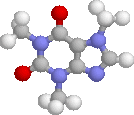

| Strona główna |
| Zespół |
| Badania |
| Aparatura |
| Seminaria |
| Publikacje |
|
Nasze konferencje |
|
Aktywność konferencyjna |
| Projekty |
| Programy |
|
Najbliższe wydarzenia |
| Linki |
| Kontakt |
|
|
|
od 2020-09-20 |

Authors: Andrzejewska W.J., Skupin M., Murawska M., Skrzypczak A., Kozak M. |
Title: The study of complexation process between cationic gemini surfactants and dna using structural and spectroscopic methods |
Source: Biophysical Journal |
Year : 2015 |
Dicationic (gemini) surfactants are intensively studied group of chemical compounds, because of the broad range of applications in medicine, chemical technology or pharmaceutical industry. In solution they can form with nucleic acids the complex structures (lipoplexes), which can be used as drug delivery systems in nonviral transfection. Lipoplexes in gene therapy offer efficient introduction of a therapeutic material to the living cells. Gemini surfactants also allow introduction of a transgene without inducing natural immunological response and release it inside the cell. In our study, we analyzed the process of complexation of cationic gemini surfactants (3.3'- [1,6- (2,n-dioxyalcane)] bis(1-dodecyloxyimidazolium dichlorides)) with DNA, using small angle X-ray scattering, circular dichroism spectroscopy and gel electrophoresis. Surfactants which have been used had of variable length of the spacer group. We observed the formation of stable complexes in these systems and the process of complex formation was reproducible, efficient and immediate. |
|
|
Zaktualizowano: podstrony 2025-12-13 / bazę danych: 2025-12-14 by Webmaster: Zbigniew Fojud